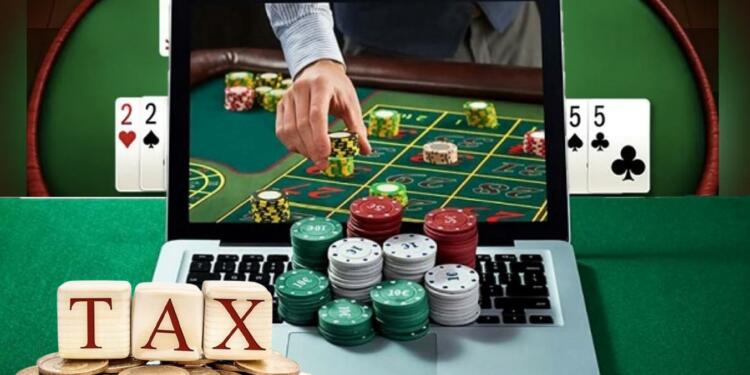The Digital revolution has evolved every aspect of human life & so has entertainment. The mass involvement in a particular domain creates a favourable condition for business; that’s what online gaming has become. From a personal tool of entertainment, it has now become a strong independent industry by itself. According to a 2021 report by BCG (Boston Consulting Group), “Even though currently smaller than the US and China, gaming in India is sizeable at $1.5B (~1% global share) and expected to triple in size to a $5B+ market by 2025 on the back of the “mobile-first” phenomenon.” Concerning the level of growth & misuse, institutionalized facilitation according to the law is the need of the hour.
Increase in Taxation
Recently, the online gaming industry has opposed the proposed increase in GST (Goods & Services Tax) by the GST Council, from earlier 18% to 28%.
Rameesh Kailasam, CEO of India Tech.Org, an industry association representing India’s consumer internet start-ups, unicorns and investors said “the potential of the online gaming industry in India needs to be tapped rightfully. It is necessary that games involving skill should ideally be taxed at 18% on the platform fee. Since online skill-based gaming is not gambling or betting or wagering, a clarification needs to be issued to resolve litigation and provide relief to the industry”.
Earlier a Group of Ministers (GoM) was assigned by the GST Council to take a look into the matters related to the GST regime on online gaming & the empowered committee has reportedly recommended an increase in the GST from earlier 18% to 28%.
The increase in GST is an effort by the government to control & discourage games involving gambling and betting under the veil of online gaming. It is pertinent to mention that online gaming more often involves a large trade of money, either through direct betting on a game of chance or through a combined pool of money on a game of skill.
Read More: Online gaming is an idea whose time came long back, it just needs government regulations
Taxation – A tool of control
Although on various occasions Indian courts have demarcated a line between a game of skill & game of chance making betting on a game of skill legal but the thin line between the two makes the administration very difficult to differentiate. As in every aspect of sports, there is relatively a degree of chance involved and so a degree of skill, differentiating two will be subjective & will obviously increase the conflict.
Taking the fact into consideration that online gaming is going to exponentially grow in the near future and that globalization & digitization will further reduce the control of the government on the industry, the government has decided to regulate it more innovatively.
Earlier, as in the case of cryptocurrency, despite the continuous advisory issued by the regulatory bodies, investment in online currency did not stop. The fact of the matter is the world is now more globalized and connected through a digital interface, it is almost impossible for a democratic country like India to control it from scratch as China does.
Read More: Why Online Gaming Is Becoming the New Growth Driver
So rather than controlling online ‘gambling’ by imposing a blanket ban through legislation, the GoM has proposed to “do away with the distinction between skill gaming and chance gaming”.
In a way, the earlier 18% GST tax on the online gaming platform fee will be equalized with 28% taxes on the chance of gaming such as racing, betting, and lotteries that are levied on the contest entry amount. It means not only will the GST apply to the platform fee but it will also apply to every transaction on the platform.
So, both games of skill & games of chance will be regulated in the same domain of administration and will further reduce the ambiguity paving the way for growth under the regulatory eye of the government.
The same solution was earlier advanced by TFI, to reduce the ambiguity in the understanding that the ‘legalized’ game of skill & ‘regulated’ game of chance needs to be erased through the rationalization of taxes and formulation of policies on the line of international standards. Though the rationalization through taxes will be resolved by the GoM’s recommendation and GST Council’s implementation, the formulation of standard policy is yet to come.
It is a matter of fact that young children are mostly involved in online gaming and increasing the money factor in the gaming sector is creating a different problem for parents. Considering the interest of young children and parents, the government now needs to bring standard rules & regulations for the online gaming apps and for such platforms which give space to betting on ‘game of skill’.


























